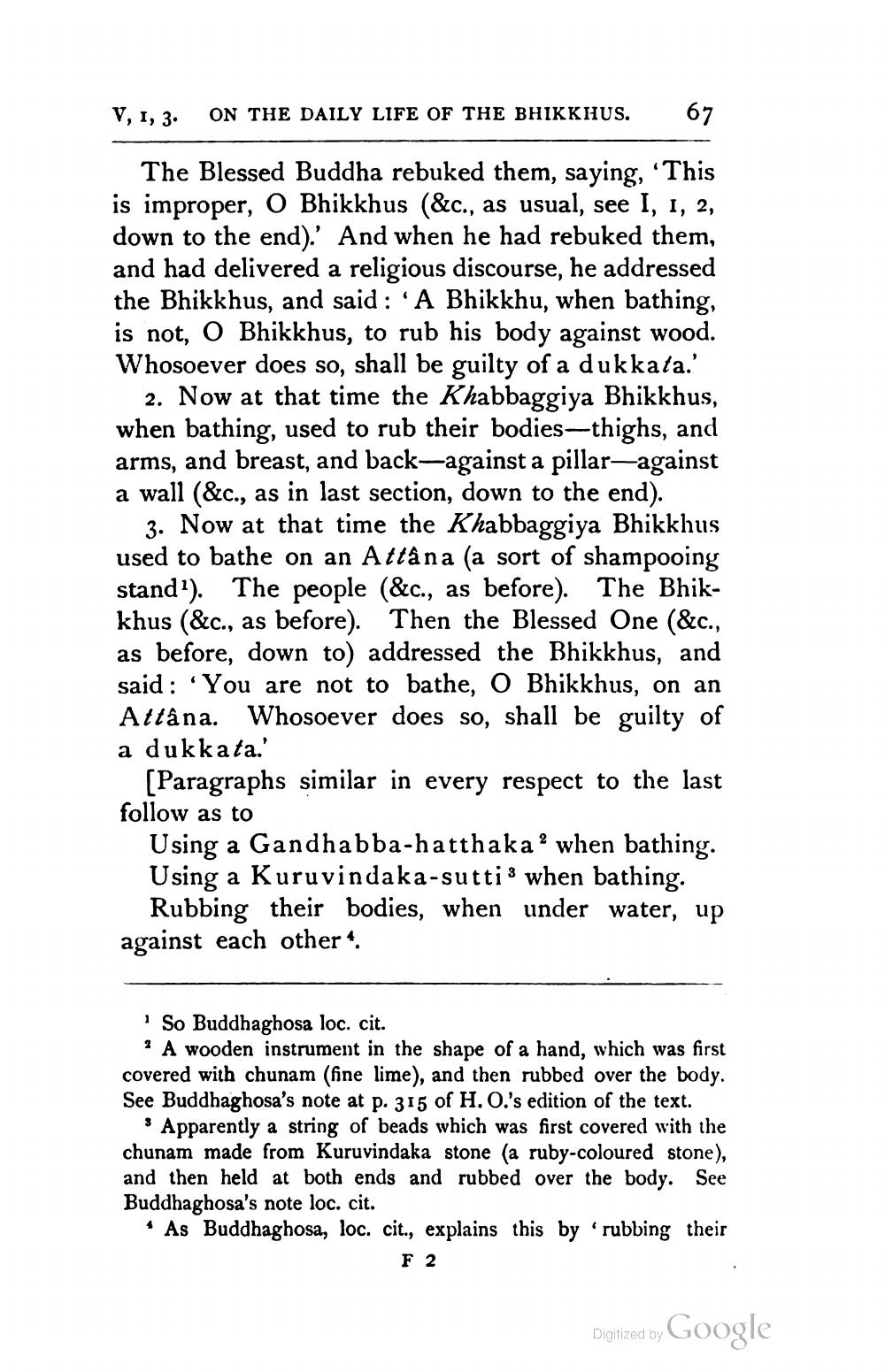________________
V, 1, 3. ON THE DAILY LIFE OF THE BHIKKHUS.
67
The Blessed Buddha rebuked them, saying, 'This is improper, O Bhikkhus (&c., as usual, see I, 1, 2, down to the end).' And when he had rebuked them, and had delivered a religious discourse, he addressed the Bhikkhus, and said: 'A Bhikkhu, when bathing, is not, O Bhikkhus, to rub his body against wood. Whosoever does so, shall be guilty of a dukkata.'
2. Now at that time the Khabbaggiya Bhikkhus, when bathing, used to rub their bodies-thighs, and arms, and breast, and back—against a pillar-against a wall (&c., as in last section, down to the end).
3. Now at that time the Khabbaggiya Bhikkhus used to bathe on an Attana (a sort of shampooing stand). The people (&c., as before). The Bhikkhus (&c., as before). Then the Blessed One (&c., as before, down to) addressed the Bhikkhus, and said : You are not to bathe, O Bhikkhus, on an Attâna. Whosoever does so, shall be guilty of a dukkata.'
[Paragraphs similar in every respect to the last follow as to
Using a Gandhabba-hatthaka? when bathing. Using a Kuruvindaka-sutti: when bathing.
Rubbing their bodies, when under water, up against each other 4:
So Buddhaghosa loc. cit. ? A wooden instrument in the shape of a hand, which was first covered with chunam (fine lime), and then rubbed over the body. See Buddhaghosa's note at p. 315 of H.O.'s edition of the text.
* Apparently a string of beads which was first covered with the chunam made from Kuruvindaka stone (a ruby-coloured stone), and then held at both ends and rubbed over the body. See Buddhaghosa's note loc. cit. * As Buddhaghosa, loc. cit., explains this by 'rubbing their
F 2
Digized by Google




